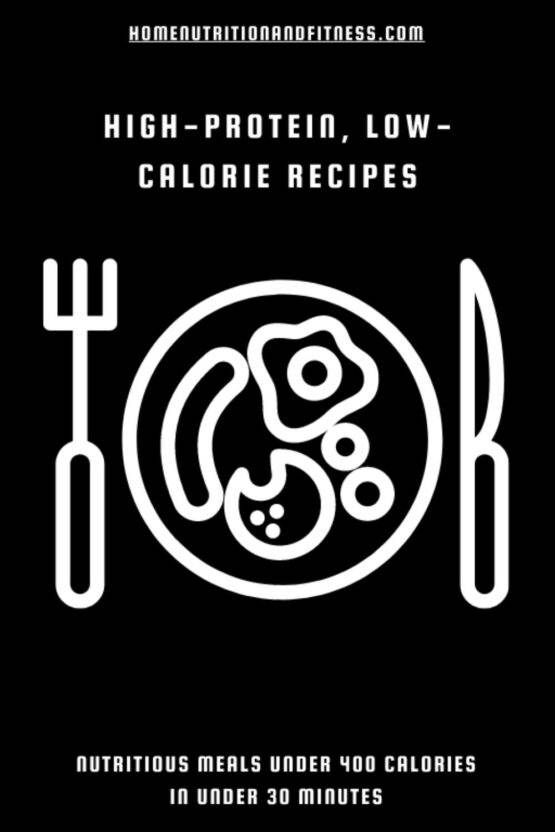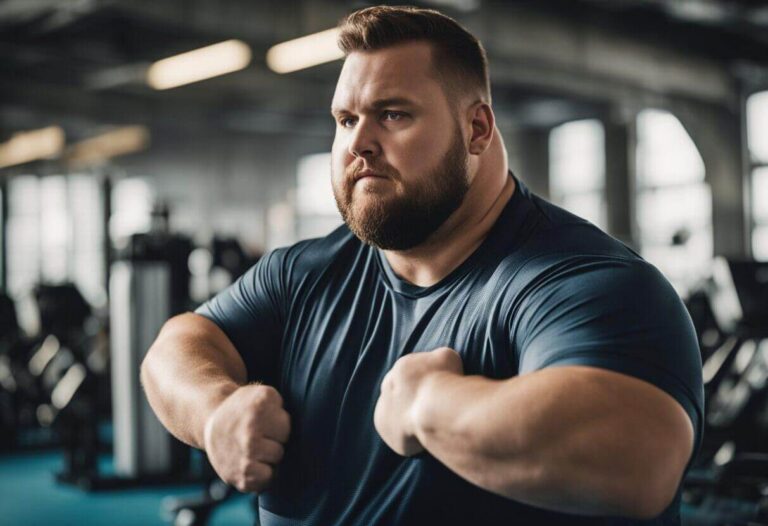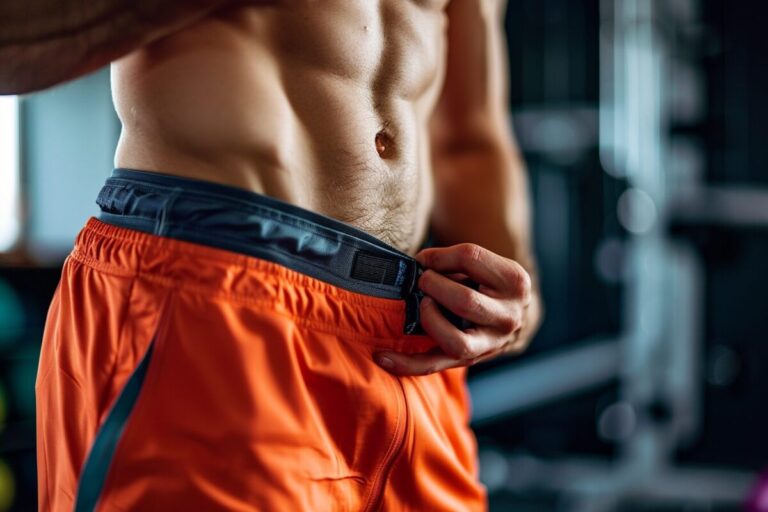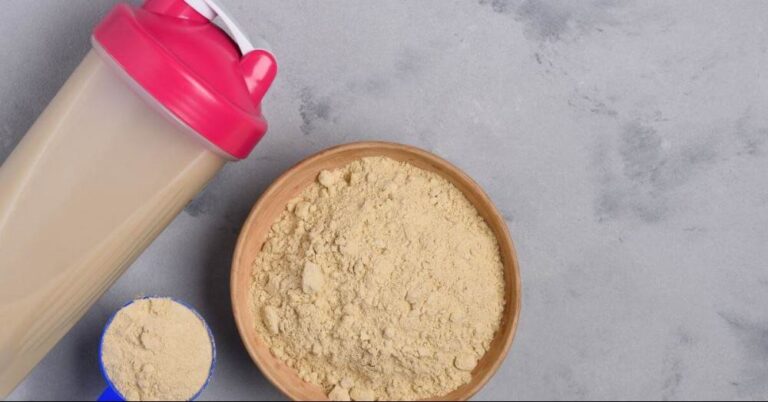I’m a sucker for a morning coffee. But I don’t drink coffee to wake me up. I don’t feel like I NEED a coffee like some people do, I just like the taste.
However, for you guys who need a caffeine boost first thing in the morning, there might be an alternative option…
Pre-Workout
Pre-workout is usually seen as a pre-gym drink to give you a boost of energy and focus. It contains many performance-enhancing ingredients including caffeine. But is swapping out your morning brew for a powdered alternative a good idea? Will pre-workouts even wake you up like a coffee does?
In this article, I’ll help you understand whether pre-workout can replace your morning coffee and give you a boost of energy and focus to start your day.
Pre-workout can contain up to FOUR times the amount of caffeine as a cup of coffee. It’s the caffeine in both pre-workout and coffee that gives you the energy boost and feeling of alertness that helps to get you up and out of bed. The benefit of pre-workout over coffee is that it contains other ingredients such as creatine and citrulline that allow the energy boost to be sustained over a longer period of time.
Affiliate Disclosure: Please note that some of the links on this page may be affiliate links. This means that if you click on these links and make a purchase, we may earn a small commission, at no additional cost to you. As an Amazon Associate, we earn from qualifying purchases. We only recommend products and services that we believe in and use ourselves. Your support through these links helps us keep the content coming. Thank you for your support!
The Morning Routine: Pre-Workout or Coffee?
Dragging yourself out of bed in the morning can be difficult. You might need a caffeine kick to get you up and ready for the day, or like me, you just like a coffee as part of your morning ritual.
The caffeine boost you get from your morning coffee gives you a quick burst to get you out of the door and into the school run, work or even the gym. The problem is that this temporary boost can wear off pretty quickly and by the time you’ve sat down at your desk, you’re ready to drop off back to sleep.
This is where a pre-workout supplement comes in. Pre-workouts are specifically designed to enhance energy, focus, endurance and performance. The ingredients like caffeine, amino acids, and creatine work together to provide a sustained boost over a longer period.
If you’re having a crash early in the day, it might be worth considering switching your morning Starbucks for a dose of pre-workout.
Benefits of Pre-Workout As A Morning Wake-Up Call
Your coffee gives you a stimulating caffeine boost each morning, we already know that. But compared to coffee, pre-workout offers a few unique advantages:
- Can Be Customised: There are literally 100’s of pre-workout formulas on the market. It’s easy to pick one with your ideal dose of caffeine and a tailored combination of energizing ingredients.
- Sustained Release of Energy: The combination of ingredients in pre-workout are structured to be absorbed steadily, avoiding a quick spike and crash.
- Supports fitness goals: Many pre-workouts contain extras like creatine and BCAAs to enhance strength and muscle-building. Creatine is also known to improve cognitive brain function.
- Convenient powder form: Easy to mix up at home or transport single-serving packets to take on the go.
- Variety of flavours: Pre-workouts come in delicious fruit flavours, so it could be a better option for those with a sweet tooth.
Let’s take a more in-depth look into how pre-workout and coffee really compare, so you know what to expect if you decide to make the swap.
Pre-Workout vs. Coffee: Which is Better?

When weighing pre-workout against coffee, there are several factors to consider. Let’s take a look.
Comparing the Pros and Cons of Pre-Workout and Coffee
| Coffee | Pre-Workout | |
| Caffeine Content | Depends on whether you’re using beans, grounds, or instant. Also depends on the brew method and serving size. A Starbucks espresso shot contains approx 75mg of caffeine while an 8oz dark roast coffee contains around 130mg | Ranges from about 50mg to over 400mg per serving. Most fall between 150-300mg. |
| Energy Boost | The effects can be felt in around 15 minutes but the initial, rapid spike can leave you crashing. | The combination of ingredients in some pre-workouts promote steady energy and alertness. |
| Focus and Motivation | Can make some people feel jittery or anxious. | Ready-to-mix powders are easy to carry with you and mix with water quickly. |
| Flavour | Coffee has a bitter flavour and most will add cream, milk, sugar or sweeteners. | Available in multiple fruit flavours |
| Convenience | Needs brewing equipment and time. | Can also make people feel jittery and anxious, however ingredients such as creatine tend to enhance mental focus. |
| Muscle Building | No support for muscle growth. | Can also make people feel jittery and anxious, however, ingredients such as creatine tend to enhance mental focus. |
Pre-workout has some clear advantages over just a simple coffee.
In terms of the overall pros and cons, coffee simply gives you an energy boost. Pre-workout gives you the same, and more often, a bigger boost. But the added ingredients also contribute to sustaining the effects for longer as well as improving athletic performance.
How Does Caffeine Wake You Up?
So we already know that the caffeine will ‘wake you up’. But how?
It does this by blocking adenosine receptors in the brain.
Adenosine regulates the sleep-wake cycle.
Throughout the day, the level of adenosine in the brain increases, stimulating adenosine receptors in the brain, and making you feel tired. During sleep, adenosine levels are reduced, reducing the stimulation of adenosine receptors, and causing you to wake up. The longer you are awake, the more adenosine you accumulate and the more tired you will feel.
The Caffeine ‘Crash’
However, caffeine does not stop adenosine production. It simply stops the brain from using it as a signal for sleep.
Once the caffeine has worn off, the adenosine receptors start to function again. The additional adenosine produced floods the receptors, making you feel even more tired than you were before in some cases. This is where you experience the post-caffeine ‘crash’.
So now I’ve bored you with the science, let’s look at how pre-workout ingredients can give you that extra boost.
How Does Caffeine Keep Us Awake?
Will Pre-Workout Actually Wake You Up?
Standard pre-workouts contain caffeine in varying quantities. Caffeine makes you feel more awake. You don’t need to be a genius to figure out that, yes pre-workout will wake you up!
It’s easy to choose a pre-workout with a caffeine content you are happy with as there are so many variations on the market. Bear in mind that a standard 8oz coffee is approx 130mg of caffeine. Pre-workout formulas range anywhere from 50mg to 400 mg+ so choose accordingly.
To understand the implications of caffeine levels in pre-workout and how much you should be safely using, take a look at this article:: How Many Scoops of Pre-Workout is Too Much? (ANSWERED!)
The 6 Key Ingredients That Will Get You Energised In The Morning
Pre-workouts are more than just caffeine. They contain ingredients that work together to prolong the feeling of energy and alertness. They are:
- Caffeine
This is the classic stimulant also found in coffee. Caffeine blocks adenosine receptors to delay fatigue and sharpen concentration. Average pre-workout contains 150-350mg -up to FOUR times the amount of caffeine as a shot of espresso - L-Theanine
An amino acid that complements caffeine by promoting relaxation and focus. It offsets the jittery side effects of caffeine. - Creatine
Used to fuel high-intensity exercise by providing muscles rapid energy. This can boost endurance and make you feel more invigorated and also improve cognitive brain function. - Citrulline Malate
This extract helps reduce fatigue by widening blood vessels, and improving blood flow and oxygen delivery to muscles during exercise. - Maca Root
An adaptogenic herb traditionally used to boost energy, stamina and athleticism. It also improves hormone production and mood. - Synephrine
A citrus extract and mild stimulant that provides an energy increase without taxing the nervous system. Often used as a caffeine alternative.
The combination of nutrients found in pre-workout offers an array of benefits over your usual coffee that can reduce fatigue, and enhance cognition and physical performance. That makes pre-workout an ideal early morning drink for waking up your mind and body.
How Long Do the Effects of Pre-Workout Last Compared to Coffee?
So, just how long does it take for pre-workout to kick in and how long do the effects last when compared to coffee?
This will probably be the kicker for most people in making their decisions. Well, coffee and pre-workout have very different effectiveness timelines:
Coffee:
- Effects felt within 15-45 minutes
- Peak benefits reached at 45-90 minutes
- Effects significantly dwindle within 3-5 hours
- Caffeine fully metabolized within 5-8 hours
Pre-Workout:
- Effects felt within 30-45 minutes
- Peak benefits reached at 60-90 minutes
- Effects dwindle within 2-4 hours
- Ingredients fully metabolized within 4-6 hours
Key Differences:
- Coffee peaks faster but effects diminish more rapidly.
- Pre-workout provides more sustained energy but takes slightly longer to reach maximum benefits.
- Caffeine from coffee is fully processed quicker than a moderate pre-workout dose.
So while coffee offers a near-instant rush, pre-workout provides longer-lasting energy, focus, and physical performance gains to power you through workouts and workdays.
Keep in mind that the above figures are comparing the same caffeine content in both coffee and pre-workout. A stronger pre-workout formula will have a more prolonged effectiveness.
Recommendations For Pre-Workout
Low Caffeine – Around 100mg per Scoop
Example: LADDER Sport Pre Workout Powder Strawberry Lemonade- $42.99 at Amazon
LADDER Sport pre-workout contains 100mg caffeine from green tea, 5g creatine for power, 3g beta-alanine for endurance, and 250mg theanine for focus. It claims to prevent crashes with an optimal ratio of caffeine-to-theanine and fatigue-fighting ingredients. However, I’d imagine it’s due to the lower caffeine content. It comes in a bag of 30 servings with no artificial sweeteners, colours, or flavours, using natural fruit flavours instead.
Moderate Caffeine – 200mg per scoop
Example: LADDER Sport Pre Workout Powder Tropical Fruit- $42.97 at Amazon
This version of LADDER Sport pre-workout contains 200mg caffeine from green tea, 5g creatine for power, 1.6g beta-alanine for endurance, and 200mg theanine for focus. As with the Strawberry Lemonade flavour, it comes in a bag of 30 servings with no artificial sweeteners, colours, or flavours, using natural fruit flavours instead.
High Caffeine – 300mg+ per scoop
Example: Animal Fury Pre Workout Powder – $28.95 at Amazon
Animal Fury is a preworkout energy drink supplement containing 5g BCAA, 6g Citrulline Malate, 2g Beta Alanine, 1g L-Tyrosine, and 350mg Caffeine. Considering the huge jump in caffeine, this is relatively low priced and cheaper than the other 2 options above. Each container contains 30 servings and will provide high energy, focus, and vein-popping pumps for your work outs
Side Effects of Pre-Workout
Pre-workout undoubtedly has its benefits. Unfortunately, it has some side effects too. Two of the main drawbacks are insomnia and a pre-workout ‘crash’. Let’s look at these side effects and discover some simple ways to combat them:
How to Avoid Insomnia When Taking Pre-Workout
Insomnia can be a problem with coffee or pre-workout. The stimulating effect of caffeine can leave you staring at the ceiling, unable to sleep. However, you can try the following to overcome this:
Time Your Workout
Ideally, you want to time your workouts so that you can get the benefits of pre-workout without overlapping the effects into your bedtime. It would be best if you aimed to take your pre-workout around 5-6 hours before you expect to go to bed. This allows it to fully clear your system before you try to get some sleep.
Avoid Pre-Workouts with Excessive Caffeine
Try to cap your caffeine intake around 200mg. The recommended upper limit for caffeine per day is 400mg spread across the day. Products containing 300mg+ may interfere with your sleep if taken too late in the day.
Take Sleep Supplements
Supplements like magnesium glycinate, melatonin, and L-theanine before bed can help improve sleep quality if you’ve taken pre-workout during the day.
Realistically, if you’re using pre-workout as your morning wake-up drink then Insomnia shouldn’t cause you too many issues. Just be wary of using pre-workout or drinking coffee late in the day.

What Exactly is a Pre-Workout “Crash”?
Pre-workouts can lead to a “crash” when the effects start to subside. What causes this?
Causes:
- Caffeine wearing off causes fatigue as adenosine receptors reactivate
- Dramatic drop in motivation and focus as dopamine/epinephrine drop
- Possible hypoglycemia as nutrients are depleted
- Dehydration and electrolyte imbalance post-workout
Symptoms:
- Sudden feeling of sleepiness, mental fog, or exhaustion
- Lack of motivation and difficulty concentrating
- Headaches or irritability
- Lightheadedness or dizziness
Risk Factors:
- Products with excessive caffeine or stimulants
- Not eating enough calories/carbs post-workout
- Training in hot environments and sweating excessively
- Insufficient hydration and electrolyte replenishment
Avoiding a Crash:
- Moderate caffeine dose based on your tolerance
- Consume carbs and protein after a workout
- Hydrate and replenish electrolytes lost through sweat
- Don’t take pre-workout too late in the day
The best way to avoid the ‘crash’ when having either pre-workout or coffee is by being mindful of these precautions. You can use pre-workout regularly without that unwanted sudden energy drop-off post-supplementation.
What Is Stim-Free Pre-Workout? How Does It Compare to Stimulant Pre-Workout?
Pre-workout powders are available in stimulant-free, or stim-free varieties. They contain very similar ingredients but the main difference is the lack of caffeine.
3 Key Ingredients in Stimulant-Free Pre-Workouts
The top 3 nutrients that enhance energy and performance in stim-free pre-workouts include:
Creatine – Provides energy to allow more intense workout capacity and reduced fatigue.
BCAAs – Stimulate protein synthesis for muscle growth while delaying mental and physical exhaustion.
Beta-Alanine – Reduces lactic acid build-up in muscles, supporting greater endurance and strength.
These ingredients offer you similar benefits to stimulant pre-workout, whether your goal is completing an exhausting leg day or just powering through an afternoon productivity slump at work.
Key Differences Between Stim and Non-Stim Pre-Workouts
Stimulant Pre-Workout
| Pros | Cons |
| Huge increase in energy | May cause jitters or anxiety in some |
| Often contains caffeine+L-theanine for smooth stimulation | Risk of energy crash post-workout |
| Improves exercise performance and endurance | Could disrupt sleep if taken too late |
Non-Stimulant Pre-Workout
| Pros | Cons |
| It won’t interfere with a sleep schedule | Effects may be more subtle |
| Provides sustained energy increase without crash | Less intense workout boost |
| Uplifts mood and mental focus | Must cycle off stim pre-workouts |
It makes the most sense to combine the use of the two types of pre-workout.
Use stimulant pre-workout early in the day to wake you up and get you going for the day.
Non-stim is the better choice for late afternoon or evening workouts. You’ll still get an energy boost without affecting your sleep.
Should You Replace Your Coffee With Pre-Workout And Will It Wake You Up?
So we’ve established that, yes, pre-workout WILL wake you up. Whether you decide to replace your morning coffee with a fruit-flavoured pre-workout is another matter.
Both pre-workout and coffee have their pros and cons for waking you up and getting you ready for the day. Ultimately though, it’s caffeine that is giving you the boost you’re looking for.
Here are some key points that will help you decide which is right for you:
- Pre-workout offers more sustained energy, mental drive, exercise performance and focus benefits.
- Coffee provides a quick, convenient energy spike but may cause crashes or jitters.
- Pre-workout allows you to customise your caffeine levels.
- Coffee boasts more of a comforting, ritualistic factor.
- Pre-workout can enhance your fitness goals and takes just seconds to mix up.
If you want the added boost of sharper cognition and more sustained energy, pre-workout is your go-to.
But for some of you, coffee may still win in terms of sticking to what you know.
Personally, I’ll stick with my morning coffee. But that’s just me.
Let me know what you think in the comments.
For more information on supplements including pre-workout, creatine and protein powders see What Are Supplements? (And Why Do They Matter?)







